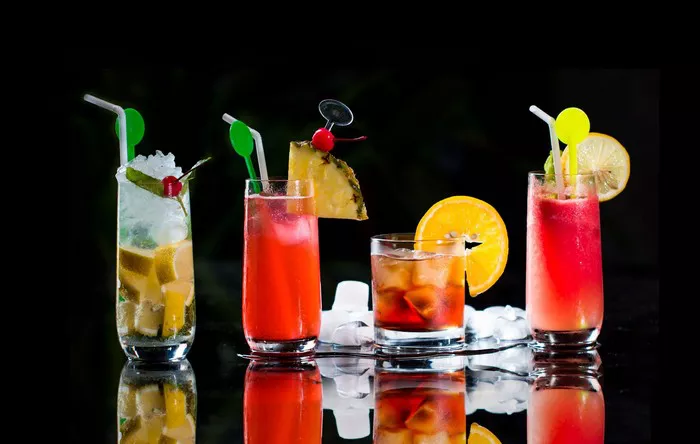Cocktails have evolved from simple combinations of spirits, mixers, and garnishes into an art form, with bartenders continually pushing the boundaries of flavor and presentation. Originating as a practical solution to mask the harsh taste of spirits, cocktails have become a symbol of sophistication and creativity in the world of beverages. From classics like the Martini and the Old Fashioned to modern innovations like molecular mixology creations, the landscape of cocktails is vast and diverse.
Definition of ‘Original’ Cocktails
Defining what constitutes an “original” cocktail can be somewhat subjective. Generally, an original cocktail is one that is created by a bartender or mixologist and is not simply a variation or adaptation of an existing recipe. Original cocktails often involve unique combinations of ingredients, innovative techniques, or a distinctive presentation that sets them apart from traditional or established drinks.
Number of Recognized Cocktails
Pinpointing the exact number of recognized cocktails is a daunting task due to the sheer volume of recipes circulating in the global bartending community. New cocktails are continuously being created, while existing ones are rediscovered or modified. However, organizations like the International Bartenders Association (IBA) provide lists of official cocktail recipes, which number in the hundreds. Beyond these official lists, countless more cocktails exist in the unofficial realm, crafted by bartenders in bars and homes around the world.
Categories of Cocktails
Cocktails can be broadly categorized based on their primary ingredients, preparation methods, or cultural origins. Some common categories include:
Spirit-based Cocktails: These cocktails center around a specific type of spirit, such as gin, vodka, rum, whiskey, or tequila. Examples include the Margarita, Manhattan, and Mojito.
Classics: Classic cocktails are time-tested recipes that have stood the test of time and remain popular among cocktail enthusiasts. Examples include the Martini, Negroni, and Daiquiri.
Tiki Cocktails: Tiki cocktails are known for their tropical flavors and elaborate garnishes. Originating from the Tiki bar culture of the mid-20th century, these cocktails often feature rum and exotic fruit juices. Examples include the Mai Tai, Zombie, and Pina Colada.
Craft Cocktails: Craft cocktails emphasize artisanal ingredients, creative flavor combinations, and meticulous preparation techniques. These cocktails are often found in upscale bars and restaurants and are crafted with a focus on quality and innovation.
Mocktails: Mocktails, or non-alcoholic cocktails, cater to individuals who prefer not to consume alcohol. These beverages feature a variety of juices, syrups, and other non-alcoholic ingredients to create flavorful and refreshing drinks.
Examples of Original Cocktails
Original cocktails come in a multitude of flavors and styles, each reflecting the creativity and expertise of its creator. Some noteworthy examples include:
The Last Word: Created in the early 20th century at the Detroit Athletic Club, this cocktail combines equal parts gin, green Chartreuse, maraschino liqueur, and lime juice for a complex and herbaceous flavor profile.
Penicillin: Invented by bartender Sam Ross in New York City, the Penicillin features a blend of Scotch whisky, honey-ginger syrup, fresh lemon juice, and a float of smoky Islay whisky, creating a harmonious balance of sweet, spicy, and smoky flavors.
Aviation: This classic cocktail dates back to the early 20th century and consists of gin, maraschino liqueur, crème de violette, and lemon juice, resulting in a delicately floral and citrusy drink with a hint of sweetness.
The Bramble: Created by bartender Dick Bradsell in London during the 1980s, the Bramble combines gin, lemon juice, simple syrup, and blackberry liqueur, garnished with fresh blackberries and a lemon wedge for a refreshing and fruity cocktail.
Smoked Maple Bourbon Sour: A modern twist on the classic Bourbon Sour, this cocktail features bourbon whiskey, fresh lemon juice, maple syrup, and a hint of aromatic bitters, garnished with a smoking cinnamon stick for a dramatic presentation and added depth of flavor.
Cultural Significance
Cocktails hold significant cultural importance, serving as symbols of celebration, hospitality, and socializing in various societies around the world. From the glamorous cocktail parties of the Roaring Twenties to the speakeasies of the Prohibition era, cocktails have been intertwined with moments of cultural significance throughout history. Today, cocktails continue to evolve alongside changing tastes and trends, reflecting the cultural diversity and creativity of the communities that embrace them.
In Conclusion
The world of cocktails is a rich tapestry of flavors, techniques, and cultural influences, with original cocktails representing the pinnacle of creativity and innovation in mixology. While the exact number of original cocktails may be impossible to determine, the passion and ingenuity of bartenders and mixologists ensure that the art of cocktail crafting will continue to flourish for years to come.


